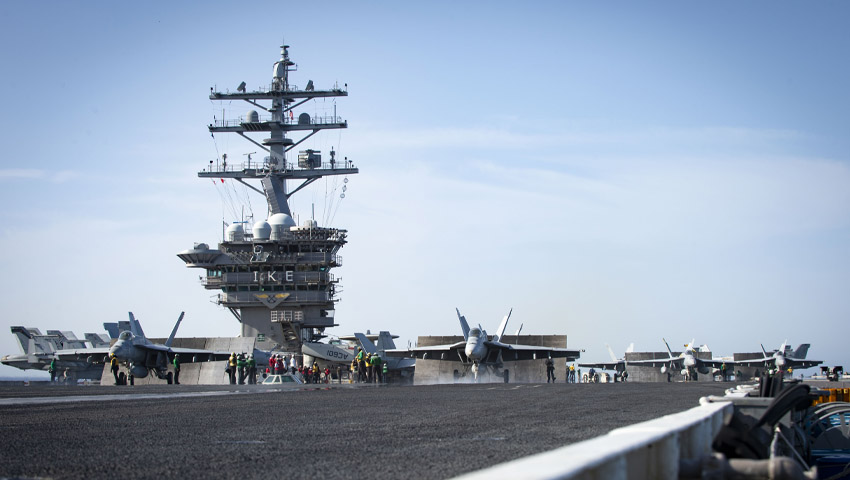Acting Navy Secretary Thomas Modly has commissioned a six-month study into the future of the aircraft carrier. The ‘blue-ribbon’ committee, to be called Future Carrier 2030 (FC-2030), will include input from both Navy and Marine Corps senior officials.
To continue reading the rest of this article, please log in.
Create free account to get unlimited news articles and more!
Though nuclear-powered aircraft carriers are a staple of the modern US fleet, quantum leaps forward in anti-ship technology have raised questions about the viability of the model in the future. Larger carriers, such as the Nimitz Class CVN-68, can hold thousands of personnel and over 100 combat aircraft. Questions over the risks associated by committing troops and equipment of this scale within the weapons engagement zone of Chinese anti-ship missiles – such the DF-21 and DF-26 – have given rise to the study.
"The long-term challenges facing our nation and the world demand clear-eyed assessments and hard choices," said acting Secretary Modly. "Because we have four new Ford carriers under contract, we have some time to reimagine what comes next. Any assessment we do must consider cost, survivability and the critical national requirement to sustain an industrial base that can produce the ships we need."
According to a press release published Monday, the study will look into:
- Constraints of means in terms of future defence budgets, as well as avenues to contemplate future possible technologies not yet invented that could change the stakes of carrier-based naval aviation in all phases of global competition;
- Options for the Department of the Navy in terms of various future aircraft (manned and unmanned, nuclear and/or conventionally-powered) carriers; and
- How best to utilise the existing carrier fleet in light of the above findings.
The study will be conducted with the assistance of the Naval University System (US Naval Academy, Naval War College, Marine Corps University, and Naval Postgraduate School), as well as eligible Federally Funded Research and Development Centres (FFRDCs) and Naval Warfare Centres.
According to the news release, the task force will be led by an executive director chosen from within the Department of the Navy's Secretariat staff, and assisted by representatives from the Office of Naval Research.

 Login
Login






